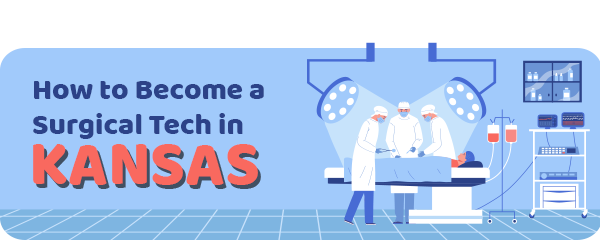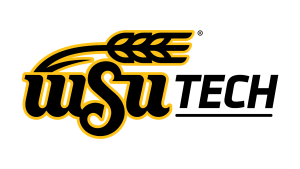In Kansas, the operating room is staffed with a dedicated team ready to respond swiftly, especially in critical situations.
This skilled team comprises:
- Surgeons
- Anesthesia specialist
- Surgical nurse
- Surgical technician
Their seamless collaboration commences prior to the surgical procedure’s initiation and continues well after the surgery’s conclusion.
These healthcare professionals may also be referred to as operating room (OR) techs and scrub techs.
Article Table of Contents
Surgical Technologist Job Roles and Responsibilities
The role of a surgical technologist encompasses a variety of responsibilities during their work shifts.
These include:
- Preparing patients for surgery
- Transporting patients to and from the OR
- Preparing the OR with surgical equipment and supplies
- Monitoring the instrument count throughout surgery
- Handing the surgeon medical instruments
- Closing wounds and bandaging patients
It’s essential to understand that these tasks represent only a portion of the comprehensive duties undertaken by these healthcare professionals.
Training and Education for Surgical Technologists
Aspiring surgical technologists in Kansas embark on their journey by completing their high school education, though obtaining a GED credential is also a viable path.
The subsequent step involves enrolling in a specialized training program tailored for this occupation.
This rigorous curriculum encompasses a combination of theoretical education and hands-on clinical training.
Numerous institutions in Kansas offer such programs.
While each may have slightly distinct admission prerequisites, common courses generally include subjects such as:
- Microbiology
- Pathophysiology
- Pharmacology
- Anatomy
- Physiology
- Medical terminology
Cardiopulmonary Resuscitation (CPR) and/or Basic Life Support (BLS) and/or Automated External Defibrillator (AED) training are often required components.
Bevill State Community College 
This institution’s program delves into various essential topics.
These are:
- Sterile processing
- Infection control
- Sterilization
- Instrumentation identification
- Safety
Prospective students are expected to meet specific prerequisites such as possessing a high school diploma or GED, passing an Accuplacer placement exam, and possibly having prior medical-related experience.
Clinical experience and other requirements are also part of the criteria.
Calhoun Community College 
At this college, the training program spans approximately two years or four semesters, featuring classroom instruction, laboratory work, and clinical training.
Pursuing an AAS at this institution entails fulfilling additional general education credit hours.
Admission criteria include attending a program information session and completing a Manual Dexterity Exam.
Hutchinson Community College 
Located in Hutchinson, Hutchinson Community College offers a comprehensive certificate program that can be completed in just ten months.
The program encompasses 49.5 credit hours, with prerequisites including:
- Human Anatomy
- Physiology
- General Microbiology
- Cardiac Care
Graduates of this program enjoy an impressive job placement rate of 90 percent.
Wichita State University 
WSU Tech extends two options to prospective surgical technologists: a certificate program and an Associate of Applied Science (AAS) surgical technology program.
The certificate program spans 52 credit hours and typically takes about one year to finish, while the AAS degree program consists of 67 credit hours and is generally completed in two years.
Both programs incorporate a CPR certification course and clinical externships.
Graduates boast a remarkable 100 percent pass rate on the NBSTSA exam and a 100 percent job placement rate.
Washburn Institute of Technology 
Washburn Tech offers a robust 53-credit-hour certificate program in surgical technology.
This program is structured to be completed in two semesters (equivalent to one year) and is conducted as full-time day classes.
Admission to this program is highly competitive, with only 14 students accepted annually.
Prerequisite courses that must be taken before embarking on the surgical tech program include:
- Anatomy and Physiology
- Human Development
- Nutrition.
Additionally, students entering the program are required to pass the English and Math sections of the WorkKeys assessment test.
Scores from COMPASS, SAT, or ACT exams taken within the past five years are also accepted.
| School Name | Address |
|---|---|
| Bevill State Community College | online |
| Calhoun Community College | online |
| Hutchinson Community College | 1300 N Plum St, Hutchinson, KS 67501 |
| Wichita State University | 1845 Fairmount St, Wichita, KS 67260 |
| Washburn Institute of Technology | 1700 SW College Ave., Topeka, KS 66621 |
Certification and Renewal
While surgical technologists are not legally mandated to obtain certification in Kansas, many employers highly value certified professionals.
Several certifying organizations are recognized in the field:
- National Surgical Assistant Association (NSAA)
- Provides the Certified Surgical Assistant (CSA) qualification
- National Board of Surgical Technology and Surgical Assisting (NBSTSA)
- Provides the Certified Surgical Technologist/Certified First Assistant credential
- National Center for Competency Training (NCCT)
- Provides the Tech in Surgery Certification
Out of these, the NBSTSA certification is widely acknowledged and holds national recognition.
Certification renewal is typically required every four years.
It can be achieved either through retaking the certification exam or by completing continuing education courses.
The second option mandates 60 education credits during the renewal period.
Renewal also involves a fee.
Surgical Technologist Salaries in Kansas
While not the most glamorous profession, understanding the potential income for surgical technologists in Kansas is valuable.
On average, an operating room technician in the state can earn approximately $49,000 per year.
The following table highlights cities within Kansas where these professionals typically earn higher salaries compared to other areas:
Annual Salary Range:| Location | Avg. Annual Salary |
|---|---|
| Leawood | $50,300 |
| Winona | $50,100 |
| Troy | $50,000 |
| Osawatomie | $50,000 |
| Stilwell | $50,000 |
| Saint Francis | $49,800 |
| Monument | $49,600 |
| Ludell | $49,500 |
| Winchester | $48,600 |
| Sycamore | $48,500 |
Regional Salary in Kansas
| Region | Employed | Avg. Annual Salary | Avg. Hourly Pay | Top 10% Annual Salary | Bottom 10% Annual Salary |
|---|---|---|---|---|---|
| Manhattan, KS | 30 | $52,720 | $25.35 | $59,540 | $40,280 |
| Topeka, KS | 130 | $59,070 | $28.4 | $67,250 | $39,560 |
| Wichita, KS | 290 | $49,890 | $23.99 | $60,680 | $39,420 |
* Employment conditions in your area may vary.
Frequently Asked Questions
What Sills Do I Need To Work As A Surgical Tech in Kansas?
Here are the most important skills this profession requires:
- Able to work as part of a team
- Detail-oriented
- Take direction
- Understanding medical terms
- Understanding medical methodology
- Good communication skills
Where Do Surgical Technologists from Kansas Find Work?
These technologists usually work in a hospital’s surgery wing.
Furthermore, these other places also hire such specialists:
- Children’s hospitals
- Cosmetic surgery centers
- Specialty clinics for surgical procedures
What Are Some Possible Career Options Available For Surgical Techs In Kansas?
Surgical techs have many job options to choose from.
Here are some of them:
- Certified Surgical Technologist
- CST Educator
- Instrument Room/Central Processing Manager
- Medical Industry Representative
- Tissue Procurement Manager
- Central Sterile Supply Specialist
Read the full guide: How to Become a Surgical Technologist




